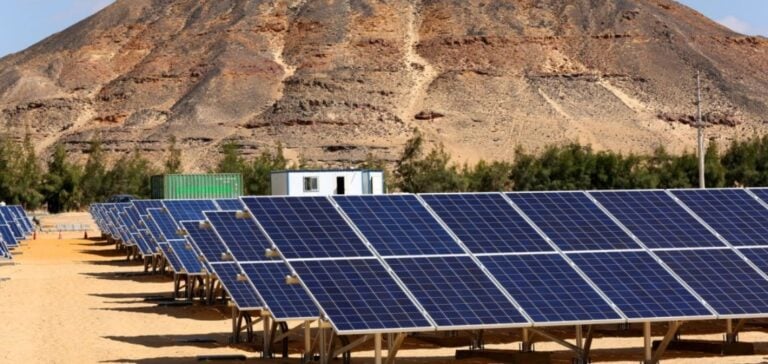EliTe Solar, one of the world’s leading manufacturers of solar solutions, is investing $150 million to establish an 8 gigawatt (GW) solar production center in Egypt’s Suez Special Economic Zone.
The project, which will cover 78,000 square meters, is structured in two development phases, with commissioning of the first phase scheduled for September 2025.
This first phase will deploy an initial production capacity of 2 GW of high-efficiency solar cells.
Production Capacity Building and Market Strategy
The Egyptian plant is designed to produce solar cells and assemble photovoltaic modules, meeting the growing global demand for renewable energy.
A significant proportion of production will be destined for export to strategic markets, notably the United States, helping to secure solar panel supplies in a context of increasing international competition and tense supply chains.
The plant’s geographical location, within the Suez Special Economic Zone, offers a major logistical advantage, with direct access to shipping corridors to North America, Europe and Africa.
This strategic location not only reduces transport times and costs, but also boosts the competitiveness of Egyptian exports in the solar technology sector.
Supply Chain Optimization and Production Site Diversification
EliTe Solar’s expansion into Egypt is part of a strategy to diversify its production sites, which already includes bases in Indonesia and Vietnam.
By multiplying the locations of its facilities, EliTe Solar seeks to reduce the risks associated with supply chain disruptions and position itself as a resilient player in the face of fluctuations in the global solar energy market.
This approach also enables us to better respond to the needs of different regional markets with a more responsive and adaptable offering.
According to Derek Liu, President of EliTe Solar, “integrating Egypt into our global production network is essential to optimize our logistics and improve our international competitiveness.”
By consolidating its production capacities in strategic regions, EliTe Solar intends to capture new market share in a fast-growing sector, particularly in North America.
Impact on Egypt’s Economic and Energy Development
For Egypt, the arrival of a major investment by EliTe Solar is part of an economic development drive focused on energy diversification and industrialization.
The Egyptian government, through the Suez Special Economic Zone, actively encourages foreign investment in cutting-edge technologies to boost the local economy, stimulate the creation of skilled jobs and promote the transfer of technological know-how.
The new solar manufacturing plant will also enable Egypt to establish itself as a regional hub for renewable energies, capable of efficiently serving markets in Africa, Europe and the Middle East.
Increasing local production capacity in solar technologies will help to diversify the country’s energy mix and reduce its dependence on imported fossil fuels.
Challenges and prospects for the solar industry
EliTe Solar’s project in Egypt comes at a time when global demand for solar energy is booming, particularly to meet the energy transition targets set by many countries.
By investing in new production capacity, EliTe Solar is not only anticipating an increase in demand, but is also seeking to position itself as a key supplier of solar solutions on an international scale.
Consolidating its production network with sites in Asia and now Africa enables the company to minimize operational risks and maximize its responsiveness to changes in trade policies and environmental regulations.
This geostrategic positioning and the enhancement of its production capacities will enable EliTe Solar to strengthen its role in the global renewable energies market.






















